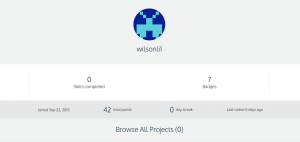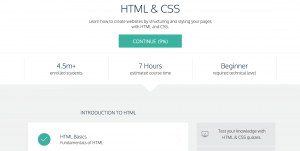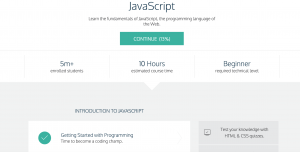Having been studying the topic of digital humanity and learning its practical applications for the last few weeks, I have become aware of this topic’s great significance and influence. Though many humanity students may disagree, I recognized that the topics of ordinary humanity and digital humanity are compatible and, essentially, identical. Hence, I urge that humanity students, regardless of their experience and fields of expertise, should still learn to code.
It has indeed become a stereotype, since the creation of computer science, that digital humanity or any related topic or feature is solely a part of computer science and something extraordinarily technical, something they or any ordinary should fare not dare to undertake. Just like what Matthew G. Kirschenbaum exemplified in his article, “Many of us in the humanities think our colleagues across the campus in the computer-science department spend most of their time debugging software. This is no more true than the notion that English professors spend most of their time correcting people’s grammar and  spelling.” Even as a novice in this field, I must state that such misconception is outrageous. Certainly, it is understandable that some of us may be daunted by the unknown factors of an unfamiliar territory, but it is erroneous to completely distance oneself due to his or her assumed incompatibility with the subject.
spelling.” Even as a novice in this field, I must state that such misconception is outrageous. Certainly, it is understandable that some of us may be daunted by the unknown factors of an unfamiliar territory, but it is erroneous to completely distance oneself due to his or her assumed incompatibility with the subject.
I have embraced the exact same fear of any humanity student to first attend this class.
 However, as I began learning to code in Codecademy, I noticed a sense of familiarity. I felt like I was creating a detailed and presentable poster, which is heavily use in any of my humanity classes, such as history, economy and literature studies, for presentation
However, as I began learning to code in Codecademy, I noticed a sense of familiarity. I felt like I was creating a detailed and presentable poster, which is heavily use in any of my humanity classes, such as history, economy and literature studies, for presentation
. What I was doing, I then noticed, is merely transferring the experience of writing a poster into a new and digital dimension! Just like what I will do in a normal poster, I do the exact same as I code. Particularly, I measure with rulers and precision to create pretty bullet points and I code <li> or <dl> to do the same, I use stick image and  decorated pictures on the poster and I code <img src=“ ”> to insert pictures online and I compose the poster with different colors of marker and I code body{color:} or h1{color:} to manually format different colors for any fonts.
decorated pictures on the poster and I code <img src=“ ”> to insert pictures online and I compose the poster with different colors of marker and I code body{color:} or h1{color:} to manually format different colors for any fonts.
Of course, this understanding and utility apply to more difficult humanity project as well. For instance, just like what Evan Donahue claims in his article, “programming languages math and algorithms are the discourses used by computer scientists to address their concerns just as psycho analysis ethnography.” Moreover, as my own personal experience, making a logical financial analysis for better tradeoff in microeconomics resembles and fits the purpose of coding in Codecademy “if (4+5>4) {this is a good trade} else {you are bad at math}.”
Therefore, humanity students should know some extent of coding. It may not particularly become one’s expertise, but having some degree of knowledge would not be conflictive and, in fact, be potentially conducive.
WIlson,
I’m glad that you have been able to overcome your initial reticence and see some similarities between coding and the work you have already done in the humanities making posters; they can be merely different ways to present information in different media. But does learning to code alter the way you think at all? Particularly when it comes to open ended and qualitative humanistic questions? Is there a fundamental conflict there?